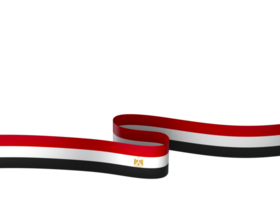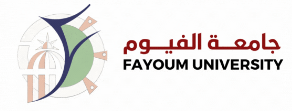Pharmacognosy
About Department
The science of Pharmacognosy is one of the oldest medical sciences. It is called "Pharmacognosy", which is derived from the Greek word "Pharmakon" which means drug and the word "gnosis" which means knowledge. The department of Pharmacognosy is considered one of the basic and unique departments in the faculty of pharmacy as it has no equivalent in other practical faculties.
The department teaches Pharmacognosy curricula to all undergraduate students enrolled in the faculty of pharmacy (including the students enrolled in clinical pharmacy department). The curricula taught in the department aim at helping students become well acquainted with the science of Pharmacognosy and at sensitizing them to the importance of studying this science to be able to obtain medical and nutritional sources of natural products (plant or animal or mineral). It is the science that examines the various parts of the plant, the separation of chemical plant components and evaluation of its biological effectiveness in order to be used in different pharmaceutical products.
Students are taught how to recognize the medicinal plants as they exist in nature or in the form of powder. They are also taught how to identify its biologically active chemical components, such as alkaloids, volatile oils, glucose, vitamins and minerals… etc. They also study the impact of these chemical components in the treatment of diseases. The students, then, move to study the chemically active ingredients, the methods of extracting them from their natural sources, methods of specifying their structural compositions and methods used in analyzing such plants. Then, in the final year, the students move to studying alternative herbal remedies and censorship on the quality of such herbal medicines using chromatographic and modern spectroscopic methods to legalize these drugs .
Department Council
| أ.د.خالد مصطفى محمد عبد الوهاب الغندقلي | المشرف على القسم |
About Department
The science of Pharmacognosy is one of the oldest medical sciences. It is called "Pharmacognosy", which is derived from the Greek word "Pharmakon" which means drug and the word "gnosis" which means knowledge. The department of Pharmacognosy is considered one of the basic and unique departments in the faculty of pharmacy as it has no equivalent in other practical faculties.
The department teaches Pharmacognosy curricula to all undergraduate students enrolled in the faculty of pharmacy (including the students enrolled in clinical pharmacy department). The curricula taught in the department aim at helping students become well acquainted with the science of Pharmacognosy and at sensitizing them to the importance of studying this science to be able to obtain medical and nutritional sources of natural products (plant or animal or mineral). It is the science that examines the various parts of the plant, the separation of chemical plant components and evaluation of its biological effectiveness in order to be used in different pharmaceutical products.
Students are taught how to recognize the medicinal plants as they exist in nature or in the form of powder. They are also taught how to identify its biologically active chemical components, such as alkaloids, volatile oils, glucose, vitamins and minerals… etc. They also study the impact of these chemical components in the treatment of diseases. The students, then, move to study the chemically active ingredients, the methods of extracting them from their natural sources, methods of specifying their structural compositions and methods used in analyzing such plants. Then, in the final year, the students move to studying alternative herbal remedies and censorship on the quality of such herbal medicines using chromatographic and modern spectroscopic methods to legalize these drugs .
About Department
The science of Pharmacognosy is one of the oldest medical sciences. It is called "Pharmacognosy", which is derived from the Greek word "Pharmakon" which means drug and the word "gnosis" which means knowledge. The department of Pharmacognosy is considered one of the basic and unique departments in the faculty of pharmacy as it has no equivalent in other practical faculties.
The department teaches Pharmacognosy curricula to all undergraduate students enrolled in the faculty of pharmacy (including the students enrolled in clinical pharmacy department). The curricula taught in the department aim at helping students become well acquainted with the science of Pharmacognosy and at sensitizing them to the importance of studying this science to be able to obtain medical and nutritional sources of natural products (plant or animal or mineral). It is the science that examines the various parts of the plant, the separation of chemical plant components and evaluation of its biological effectiveness in order to be used in different pharmaceutical products.
Students are taught how to recognize the medicinal plants as they exist in nature or in the form of powder. They are also taught how to identify its biologically active chemical components, such as alkaloids, volatile oils, glucose, vitamins and minerals… etc. They also study the impact of these chemical components in the treatment of diseases. The students, then, move to study the chemically active ingredients, the methods of extracting them from their natural sources, methods of specifying their structural compositions and methods used in analyzing such plants. Then, in the final year, the students move to studying alternative herbal remedies and censorship on the quality of such herbal medicines using chromatographic and modern spectroscopic methods to legalize these drugs .



